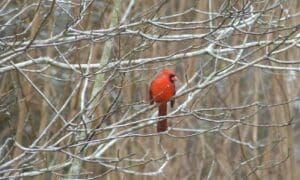For a good part of my early life, I had fairly regular encounters with bullies. From the third grade on, it seemed that I had the kind of face that older boys wanted to punch.
I wasn’t aggressive, was a nice kid, respectful to adults, eager to please and be liked — apparently a recipe for victimhood, at least in the area where I grew up. I rarely ventured far from my house and trips to the school bus stop were fraught with danger. That all changed at the beginning of the ninth grade.
All summer, prior to the last year at Ross N. Robinson Junior High School, I dreaded the return of school. I also had determined that I had had enough. Even before the first day of classes, when everyone was milling around outside, it happened.
One guy, a friend actually, made an insulting remark to me in front of some girls and, as they were laughing, I threw a punch. And so it began. And thus, it continued for the rest of the year.
I developed an attitude, had a chip on my shoulder, and didn’t care if I kept most of my friends or not. My grades suffered as I generally became a rebellious, often sullen, and potentially aggressive 14-year-old. I didn’t ever start a fight but I was determined to finish it or go down swinging.
The high water mark came during basketball season. A football player during the fall, I was the basketball statistics keeper during the winter. One day, before an away game (to which we were all required to wear ties) I was walking down the hallway when someone reached around from behind me and jerked off my clip-on tie.
Immediately, I turned and swung, aiming for the head of the guy behind me. He slipped the punch and just stared at me. I had swung at a 17-year-old 9th grader who had the reputation of being the toughest guy in school. And he was.
It was well known that he carried a hawk-billed knife and had pulled it more than once. He came from a rough part of town where even the tough guys wouldn’t mess with him. He was dangerous and I had just swung at him. In front of dozens of kids.
Biff Tannen (not his real name in case he’s still out there somewhere) stared at me and said, “You and me. After school. Outside. Today.”
“Not today,” I said. “I have an away game.”
He looked at me and said, “Tomorrow then,” and strode away. Let me say that on my very best day and on his very worst day, I was no match for this guy. I knew it, he knew it, and everybody in the school — as the word spread — knew it.
By the time school was over the next day, I knew I had to either back down or show up and take a beating. I decided that, after years of being bullied, I would take a beating.
I walked outside to the back of the school where Biff and about 200 students (you know, the kind of people who like to see the bulls killed at bullfights) who were anticipating a slaughter. As was I.
Biff said, “Okay, let’s go over in the woods,” and pointed to a place off campus.
“I can’t go over there,” I said. “I’ll miss the bus. Let’s just do this.”
After a moment, he said, “I’ve been in trouble enough this year. Once more and I’ll get expelled. I can’t fight on school grounds.”
“Biff, I don’t know what to tell you. I’m here but I’m not missing the bus.” I figured that once he beat me to a pulp, I wouldn’t be able to walk the mile back home.
He said “This isn’t over,” and walked away. A reprieve, I thought, but only for a time.
About a week later, I was walking down a deserted hallway, turned a corner, and there stood Biff. I froze, knowing that no one was there to save me.
He said, “You never shoulda taken a swing at me.”
I replied, “Biff, honestly, if I had known it was you, I wouldn’t have. But I did.”
He said, “You know I can kick your (deleted).”
“I know.”
“And yet you were just gonna get beat up?”
I said, “I can’t back down, Biff. You know how it is.”
He actually smiled and said, “Yeah, I do. I get that.” Then he started walking away.
Surprised, I said, “I guess this still isn’t over?”
He stopped and said, “Yeah it’s over. Just don’t take a swing at me again.”
“Do me a favor?” I said.
“What?”
“If you’re going to jerk my tie off, give me some notice next time.” He gave me the thumbs-up and walked off.
It really was over. For the rest of the year, he’d nod as we passed in the hallway. He stayed out of trouble and finished 9th grade. I never saw him after that, so I don’t know what happened to him. I hope he did well in life.
As for me? My being bullied days were over. Somehow, among some of the guys at school, I got the reputation as the guy who stood up to Biff Tannen. I tried to stop people from saying that out loud, not wanting to further provoke Biff.
I can’t say that Biff and I became friends, though we were friendly. I knew he could pound me into dust and he respected me for acknowledging that fact and still being willing to face him.
But I did learn this … sometimes you have to take a stand. Sometimes the risk is worth the result. Sometimes the results are surprising. I still had to navigate high school and there were encounters yet to be had.
But I was able to face them knowing that I had two things I hadn’t had before: I had the respect of a truly tough guy. And, maybe for the first time, I had self-respect as well.
And there was another thing that changed. During the next few years, which included high school athletics, summer construction work, the earning of a black belt, and a stint in the Marine Corps, I found that I would often intervene when a bully was targeting someone else who was smaller or weaker.
And, almost every time, that intervention was enough. I never had to fight … as long as the other guy understood that I was willing to.
Today, in our modern school systems, the advantage often goes to the bully. A few years ago a middle school boy that I knew well was the repeated victim of a certain bully. Appeals to teachers and administration yielded nothing. Finally, the day came when the bully started on him again.
This time, however, the smaller boy unleashed on him and pounded him thoroughly. The result? Both boys went before a juvenile judge and both boys were put on probation. The boy who was bullied had to take anger management classes. But the bigger kid left him alone after that. I told the kid that I was proud of him. So did his father.
Kenny Rogers, in his 1979 hit, “The Coward of the County,” ended the song with these lyrics:
“I promised you, Dad, not to do the things you’ve done/
“I walk away from trouble when I can/
“Now please don’t think I’m weak, I didn’t turn the other cheek/
“And papa, I sure hope you understand/
“Sometimes you gotta fight when you’re a man”
[David Epps is the pastor of the Cathedral of Christ the King, Sharpsburg, GA between Newnan and Peachtree City (www.ctk.life). He is the bishop of the Diocese of the Mid-South which consists of Georgia and Tennessee and the Associate Endorser for the Department of the Armed Forces, U.S. Military Chaplains, ICCEC. He may contacted at [email protected].]













Leave a Comment
You must be logged in to post a comment.